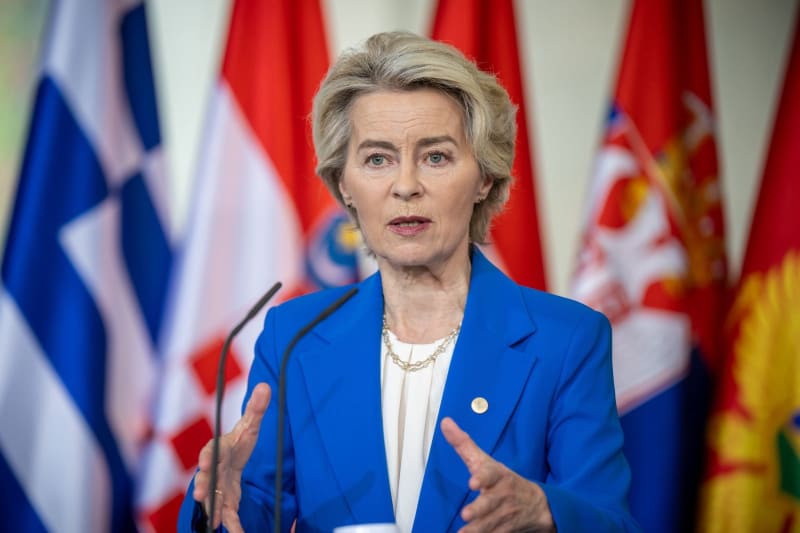The European Union imposed sanctions on three Iranian airlines – Saha Airlines, Mahan Air and Iran Air – on Monday after Iran supplied Russia with ballistic missiles for use in Ukraine.
“The Iranian regime’s support for Russia’s war of aggression against Ukraine is unacceptable and must stop,” European Commission President Ursula von der Leyen said on social media platform X.
The EU sanctions, which include an asset freeze in the bloc and a travel ban on individuals, came into effect after their publication in the EU’s Official Journal, a register of EU laws.
Two Iranian purchasing companies, the Teyf Tadbir Engineering Company and the Basamad Electronic Pouya Engineering Company, were also targeted.
A total of seven organizations and seven individuals were targeted by the EU.
Iranian Deputy Defense Minister Seyed Hamzeh Ghalandari was sanctioned along with senior officers of the Islamic Revolutionary Guard Corps (IRGC).
The EU had previously warned Iran several times against passing on ballistic missiles to Moscow and regards this step as breaking a new taboo.
Iran has strongly denied supplying Russia with these weapons. According to Tehran, the country has strategic cooperation with Moscow, although this has nothing to do with the war in Ukraine. Tehran claims that providing military aid to warring parties is inhumane.
EU foreign ministers met in Luxembourg to discuss more support for Ukraine against the large-scale Russian invasion, despite Hungarian resistance.
The bloc has also hit Russian actors and organizations accused of destabilizing Moldova’s democracy and security with new sanctions ahead of a crucial referendum on EU membership and presidential elections later this month.
Evrazia, a Russia-based non-governmental organization (NGO), was one of the targets. A statement from top EU diplomat Josep Borrell said Evrazia’s aim was to promote Russian interests abroad, including in Moldova.
The EU has also imposed sanctions on Evrazia’s director and founder, Nelli Parutenco. Four other people were targeted, including Evghenia Guţul, a separatist politician in Moldova.
“Russia makes no effort to undermine the electoral process through hybrid attacks and widespread illegal vote buying,” Borrell said later at a news conference.
Another major problem was Hungary’s 18-month blockade of an important EU military aid policy to Ukraine, the European Peace Facility (EPF), worth 6.6 billion euros.
Budapest does not want to send weapons to Ukraine, believing this will only prolong the war.
A plan Borrell presented at the meeting would make contributions to the EPF fund voluntary instead of mandatory, as a technical solution to the Hungarian opposition.
Borrell said the bloc was “almost ready” to overcome the Hungarian veto.
The new Ukrainian Foreign Minister Andrii Sybiha spoke via video link with the EU foreign ministers. Borrell welcomed his contribution in a post on X and promised new arms shipments to Ukraine.
British Foreign Secretary David Lammy was also in Luxembourg, the first time a British foreign secretary attended a meeting of EU foreign ministers alone since Britain left the EU in 2020.

